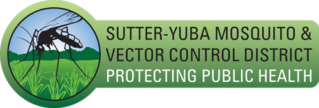The Pasadena Public Health Department reported on October 20, 2023 that a Pasadena, California resident with no travel history outside of the United States has acquired dengue. While this is the first case of human local transmission in California, dengue is rare in the U.S. Public health officials believe this is an isolated incident and there is a very low risk of additional dengue exposure in the area. Dengue is transmitted by Aedes aegypti (yellow fever mosquito) and Aedes albopictus (Asian tiger mosquito). These mosquitoes are not native to California, but they have been identified in 28 counties in California including Sutter and Yuba Counties. Dengue is transmitted to humans through the bite of an infected Aedes mosquito. Dengue cannot spread directly from human to human.
Dengue is common in many tropical and subtropical areas of the world where Aedes mosquitoes thrive like parts of Africa, the Middle East, India, Southeast Asia, South America, Central America, and North America (specifically Mexico). Visitors to these areas are strongly advised to prevent and avoid mosquito bites. For travelers returning from an area with risk of dengue, even if you do not feel sick, you should take steps to prevent mosquito bites for 3 weeks so you do not unknowingly spread dengue to mosquitoes that could spread the virus to other people. These steps include wearing long sleeves and pants and applying a mosquito repellant when mosquitoes are active or biting, and dumping or draining anything in your yard holding landscape irrigation water or rainwater. Outside animal watering dishes should be dumped and refilled weekly or more frequently.
